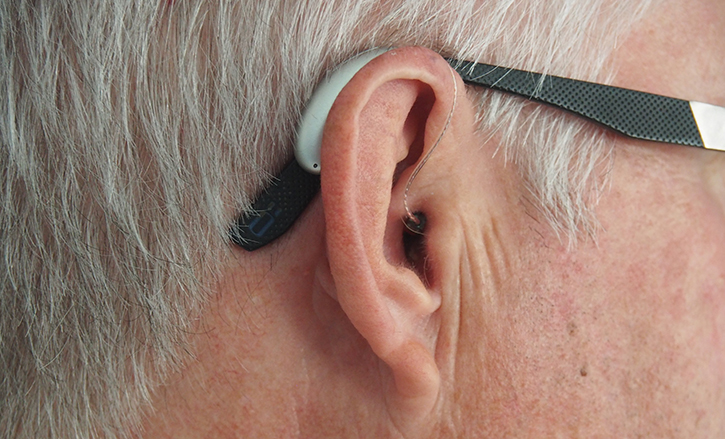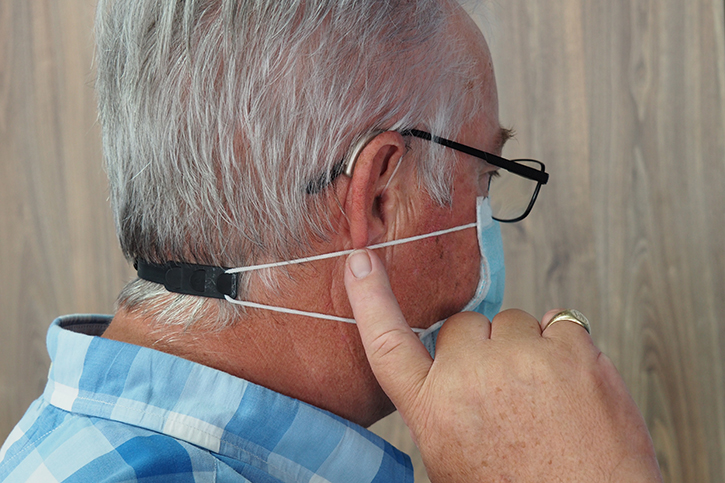In the recent World Health Organization (WHO) global hearing report, the prevalence of deafness of varying degrees was reported in approximately 1.5 billion people and is expected to occur in Southeast Asian countries, including India, approximately 109 million cases. Losing an important human sensation: Hearing can affect a person’s ability to perceive sound around them, their ability to communicate, their ability to express thoughts, and their ability to learn and obtain education. This can affect any age group. When a child is born deaf, screening for hearing loss plays an important role. Identifying a deaf child and providing appropriate habilitation can avoid the adverse consequences of growing up with hearing, such as delayed or lack of language development, impaired psychosocial well-being, loss of quality of life, difficulties in education, and economic independence.
As for acquired hearing loss, many of the conditions can be prevented if properly diagnosed and treated at the right time. The WHO has also reported that more than one billion young people are at risk of developing hearing loss due to cochlear damage secondary to acoustic trauma caused by listening to music at high intensity for a prolonged period.
Unsplash/Representative image
The last few decades have seen enormous advances in the understanding of the physiology of hearing and its related inventions and the development of technology to diagnose and restore hearing loss. These technologies have revitalized the life of a deaf person by giving them access to communication and allowing them to live their life to its full potential.
What are the common causes of hearing loss?
Hearing loss can be prelingual (before a person learns to speak) or postlingual (hearing loss after a person learns to speak). Most prelingual hearing loss is due to genetic abnormalities (it can be hereditary (it runs in families) or sporadic (new onset without a family history). The chances of this family genetic inheritance increase with the practice of consanguineous marriages (marrying between relatives). Other causes of prelingual hearing loss can be low birth weight, premature birth, neonatal jaundice, maternal infection, meningitis (infection that affects the covering of the brain). Some of the causes can be prevented with vaccination and proper medical care. These children who People who are deaf should be identified and enabled at an early age, because the growing brain has a time limit after which language development and communication skills do not develop.
As for postlingual hearing loss, again it can be genetic, meningitis, viral infection, age-related hearing loss, ototoxicity (side effect of a life-saving medication), ear infection, smoking, noise-induced hearing loss, trauma and conditions such as otosclerosis. .
How to diagnose hearing loss?

Unsplash/Representative image
With the advancement of technology, we can now detect and assess the level of hearing loss in newborns and young children as well. It is always ideal to know the hearing status of a newborn, since we have already understood the value of early intervention. Currently, newborn screening is routinely performed in most hospitals. Newborn screening is a two-step screening program, in which the child undergoes an initial test called otoacoustic emission (OAE) testing, followed by brainstem evoked response audiometry (BERA). These are safe and reliable tests. If a child is found to have hearing loss in these tests, he or she will be further evaluated to evaluate the reason for the hearing loss and possible options for hearing rehabilitation.
In adulthood, there are various tests to detect hearing loss, its severity, and the cause of the hearing loss. From simple clinical tuning fork tests to cortical evoked response telemetry. Technology now allows us to narrow down the exact location of the pathology to execute a personalized treatment.
What are the treatment options for hearing loss?
Depending on the cause of the hearing loss, treatment may be medical, hearing aids, surgical restoration, or surgical implantation of hearing devices.
What is implantation otology?

Unsplash/Representative image
It is a subspecialty of Otorhinolaryngology (ENT) that specializes in conditions related to hearing loss and deals with the surgical placement of a hearing device to restore hearing. There are several implantable devices, such as cochlear implant, bone-anchored hearing device, middle ear implants, fully implantable hearing devices, and auditory brainstem implants.
Who are candidates for a cochlear implant?
The cochlear implant is suitable for both children and adults with severe to profound hearing loss who do not benefit from conventional hearing aids. This is the first of its kind, an implantable bioprosthesis that has allowed humans to bypass the cochlea (hearing organ) and stimulate the nerves directly to mimic natural hearing. This bioprosthesis has stood the test of time and has proven beyond a doubt to be a safe and effective method of restoring sensorineural hearing loss. It has also been shown to be effective for single-sided deafness and has also been shown to be safe, with superior results with bilateral cochlear implants.
Summary
Deafness is a silent disability that affects a person’s quality of life. Restoring hearing is of utmost importance in the prelinguistic stage, as it is the important pedestal for the development of language and speech. Several conditions can cause hearing loss. Hearing restoration can be achieved with various treatment modalities depending on the etiology. Implantation otology is a specialty that deals with cases of hearing loss and provides hearing restoration with the help of bioprostheses such as cochlear implants, bone-anchored implants, etc. Hearing loss can also be acquired in a normal individual due to unhealthy practices. Living a healthy lifestyle and avoiding unnecessary exposure to high-intensity sounds can prevent the development of hearing loss.
About the Author: Dr. Sreenivas Kamath K is Consultant ENT, KMC Hospital, Mangalore. All views/opinions expressed in the article are those of the author.
Categories: Health
Source: vtt.edu.vn